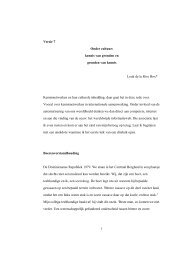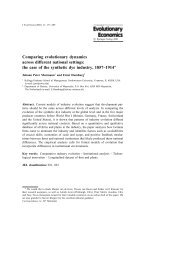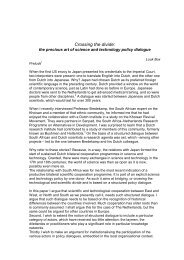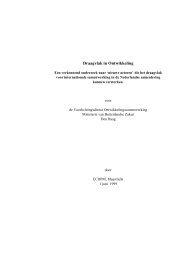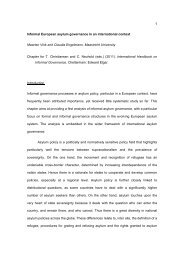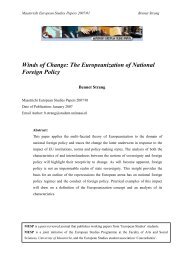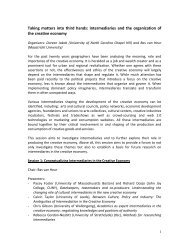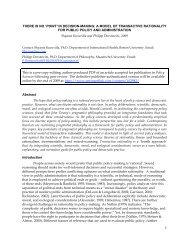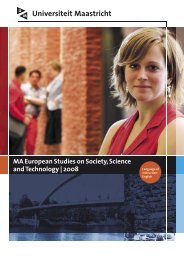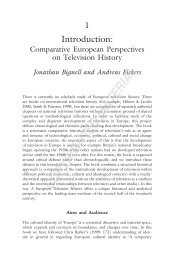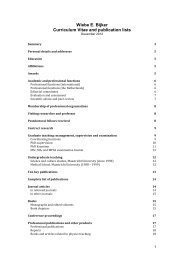Download paper - Maastricht University
Download paper - Maastricht University
Download paper - Maastricht University
You also want an ePaper? Increase the reach of your titles
YUMPU automatically turns print PDFs into web optimized ePapers that Google loves.
<strong>Maastricht</strong> European Studies Papers 2007/07 L. Unbehauen<br />
conferences, communiqués and policy declarations, which are all structured around a series of<br />
biennial ministerial meetings” (Keeling, 2006, p. 207).<br />
3. The Content and Development of the Bologna Process<br />
The first incentive for closer European cooperation in the field of education was given by the<br />
so-called Sorbonne Declaration, signed the 25 th of May 1998 by the education ministers of<br />
France, Italy, the United Kingdom and Germany. Its aim was the harmonization of the<br />
architecture of the European Higher Education System, focusing on progressive convergence<br />
of the overall framework of degrees and cycles, a common degree level system and the<br />
facilitation of student and teacher mobility (Norwegian Ministry of Education and Research,<br />
2004c, p.1). This precursory declaration was the necessary push for the Bologna Declaration,<br />
which was adopted on the 19 th of June 1999 by 29 ministers of higher education.<br />
The Bologna Process can be divided into ten interlinked action lines that together form<br />
a comprehensive reform package. The six original objectives which form the core of the<br />
Bologna Process are defined as followed:<br />
1. Adoption of a system of easily readable and comparable degrees<br />
This includes that from 2005 onwards a Diploma Supplement has to be given to all<br />
students automatically when they graduate without charging a fee. In this supplement,<br />
issued in one mayor European language, the content and type of study are explained in<br />
order to promote greater insight for future employers from other countries or further<br />
studies (Bologna Declaration, 1999).<br />
2. Adoption of a system essentially based on two main cycles<br />
This action line demands the introduction of a three years undergraduate cycle (Bachelor)<br />
whose successful completion is the prerequisite for the graduate cycle (Master). The<br />
Bachelor degree will also be sufficient as an appropriate level of qualification for the labor<br />
market (ibid.). The introduction of these two main cycles has taken varying speeds in the<br />
member states, mostly due to fears that the “new system would threaten the quality of<br />
degrees (…) and undermine their proud academic tradition” (Coss, 2004, p. 1).<br />
6



